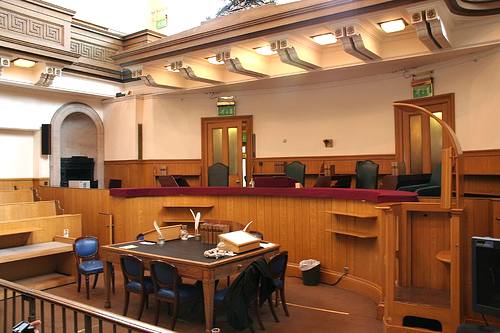To Change the Legal Education Model…Change the Faculty? (Updated)
The National Law Journal is covering a little bit of ruckus in the legal academy, raised by a forthcoming law review article entitled “”Preaching What They Don’t Practice: Why Law Faculties’ Preoccupation with Impractical Scholarship and Devaluation of Practical Competencies Obstruct Reform in the Legal Academy.” Georgetown Law adjunct professor Brent Evan Newton, the article’s author, argues that, “The academy — both in terms of its preparation of law students to enter the profession and the type of scholarship being produced by the professoriate — has lost its practical moorings.” (The article will run in the South Carolina Law Review.)
and Devaluation of Practical Competencies Obstruct Reform in the Legal Academy.” Georgetown Law adjunct professor Brent Evan Newton, the article’s author, argues that, “The academy — both in terms of its preparation of law students to enter the profession and the type of scholarship being produced by the professoriate — has lost its practical moorings.” (The article will run in the South Carolina Law Review.)
The NLJ piece goes on to summarize Newton’s criticisms and calls for change:
The value that law schools place on publication of law review articles means that faculty members often focus more on scholarship than teaching, Newton wrote. Most law review articles are grounded in legal theory as opposed to practical legal issues….Many law schools have attempted to make their curricula more relevant by adding adjunct professors and clinical faculty, but Newton concluded that those efforts are not nearly enough.
…
[Newton] suggested that law faculties be divided into two tracks — research professors and teaching professors, both of whom would be tenure-track. Research professors would account for one-third of a faculty and would concentrate on “theoretical, interdisciplinary research and scholarship” and teach fewer classes. The remaining two-thirds would teach doctrinal, clinical and legal reading and writing courses. Teaching professors would have extensive practice experience and would be expected to publish articles less frequently than research professors.
Newton’s piece apparently refers to conclusions in the much-discussed Carnegie Foundation for the Advancement of Teaching’s 2007 report on the pros and cons of the current legal education model. That report, Educating Lawyers: Preparation for the Profession of Law, in essence says that law schools do really well at teaching critical thinking skills, but don’t teach practical applications (i.e. legal practice skills) particularly well. To boot, the larger moral implications of lawyers’ actions are sometimes downplayed in favor of students being taught to think dispassionately. The report doesn’t read easily like a Harry Potter…er….Twilight…well, the PSLawNet blog has no idea which of these serials is popular nowadays, but it’s worthy reading for those who wish to plug into the increasingly robust conversation about how we should teach law students to be lawyers.
For what it’s worth, the PSLawNet Blog believes strongly in some reformation of legal education that would incorporate more experiential learning components. Public interest experiential programs – clinicals, externships, pro bono programs and the like – could point the academy in the right direction. It’s not often that public interest advocates on law school campuses get to say they’re ahead of the curve, but in this case we think it’s true. Going to court and doing real work on behalf of real clients is what public interest students have always been doing to make themselves more marketable immediately after graduation.
Speaking of robust conversations, the super-exciting legal blogosphere is abuzz:
Are Law School Faculties Part of the Problem with Legal Education? (WSJ Law Blog)
A Skunk In The Ivory Tower (Simple Justice)
Law School and Lawyering: A Post by Kristen Holmquist (PrawfsBlawg)
Two-Track Legal Education Coming to a Law School Near You? (Legal Blog Watch)
We are curious about your thoughts . . . Please share in our comments section.
Permalink Comments off
























































